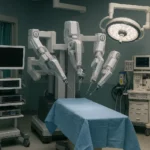Can Bone Marrow Transplant MS Patients Find a Cure?
Multiple Sclerosis (MS) is an illness that strikes the central nervous system with disabling attacks and a relapsing-remitting (episodic flare-ups with partial recovery) course. Doctors have established a series of treatments over time, but as yet, they have not found a cure for MS. New technology in bone marrow transplant (BMT) and stem cell therapy holds promise for MS patients who want a cure. Can a bone marrow transplant cure Multiple Sclerosis, then? Let us explain the process of BMT, its success rate, its cost, and why India is the country most sought-after for the process today.
Learning about Multiple Sclerosis (MS)
What is Multiple Sclerosis?
MS is a disease where the immune system attacks the sheathing on the nerve fibers and interrupts the transmission of messages from the brain to the rest of the body. As a result, recurrent injury causes permanent neurological damage.
Types of Multiple Sclerosis
- Relapsing-Remitting MS (RRMS) – Most prevalent are relapsed occasionally with periods of remission.
- Primary Progressive MS (PPMS) – Steady worsening of the symptoms without clear relapses.
- Secondary Progressive MS (SPMS) – Develops from RRMS but later becomes a progressive type.
- Progressive-Relapsing MS (PRMS) – A rapid, rare form of MS with steady progression and recurring relapses.
Causes of Multiple Sclerosis
While the cause is not yet certain, experts believe that genetic and environmental factors cause MS, such as:
- Family History – Having one close relative with MS does raise the risk slightly because of genetic susceptibility.
- Infections with viruses – Epstein-Barr also causes an abnormal immune response that leads to the formation of MS.
- Vitamin D Deficiency – Vitamin D deficiency can inhibit immune regulation and enhance MS risk.
- Smoking and Lifestyle – Smoking and inappropriate lifestyle are the causative factors of inflammation and disease development.
Most Typical Symptoms of MS
- Severe Fatigue – You feel constantly extremely tired even after resting.
- Muscle Stiffness and Weakness – Muscles stiffen, become weak, or cramp spontaneously.
- Vision Problems – Blurry, double, or trouble seeing.
- Balance and Coordination Problems – Clumsiness, dizziness, or impairment of walking.
- Memory and Thinking Problems – Difficulty remembering, focusing, or understanding.
- Bladder and Bowel Symptoms – Sudden urge to urinate, difficulty holding urine, or constipation.
How Is Multiple Sclerosis Diagnosed?
Diagnosed on:
- MRI scans – Lesions on brain and spinal cord
- Spinal tap (lumbar puncture) – Abnormal cerebrospinal fluid
- Neurological examinations – Nerve function
Traditional Treatment for MS
Treatment for Multiple Sclerosis today includes:
- Medications – Disease-modifying drugs (DMTs) to reduce disease activity
- Physical therapy – Strengthening of muscle and mobility
- Lifestyle adaptation – Exercise, diet, stress reduction
- Stem Cell Therapy – Hope to fix nerve damage
Bone Marrow Transplant (BMT) for Multiple Sclerosis
What is a Bone Marrow Transplant?
Doctors replace infected or diseased bone marrow with new stem cells in the Bone Marrow Transplant (BMT) procedure. Furthermore, stem cells can restore the immune system and even stop MS from getting worse.
1: The patient’s immune system is weakened by chemotherapy.
2: Stem cells are harvested from the patient’s bone marrow.
3: The patient is administered a massive dose of chemotherapy to kill the defective immune system.
4: The stem cells that are harvested are reinfused to establish a new immune system.
Doctors refer to the treatment as autologous hematopoietic stem cell transplantation (AHSCT), and as a result, they find it to have positive outcomes in preventing MS from worsening.
Stem Cells in Bone Marrow Transplant
Stem cells enable the immune system to be restored. The special cells can develop into different types of other blood and immune cells, and they also repair damaged nerve fibers.
Bone Marrow Biopsy and Its Use in BMT
Doctors normally perform a bone marrow biopsy to check the health of the bone marrow before transplanting. It helps doctors decide if the patient is suitable for BMT or not.
Bone Marrow Transplant & Stem Cell Therapy of MS: Comparison
Both treatments utilize stem cells, but bone marrow transplant is an extremely invasive method through the vehicle of chemotherapy but relatively less invasive through stem cell therapy.
The Role of Stem Cell Therapy in Treating Multiple Sclerosis: A Non-Invasive Option
- How Stem Cell Therapy Works:
Stem cell therapy for MS employs stem cells to regenerate and repair damaged nerve tissues. In addition, this therapy stimulates healing by replacing damaged or degenerated nerve cells and enhances the function of the central nervous system. - Comparison to BMT:
Stem cell therapy is generally less invasive than BMT as it doesn’t require chemotherapy to wipe out the immune system. Instead, doctors use stem cells to rebuild and repair the immune system and nerve damage. While BMT is more aggressive, stem cell therapy offers a less invasive alternative, especially for patients who may not be candidates for chemotherapy-based treatments like BMT.
How Bone Marrow Biopsy Helps Determine Eligibility for Bone Marrow Transplant in MS Patients
- Importance of Bone Marrow Biopsy:
Doctors perform a bone marrow biopsy to assess the health of the patient’s bone marrow before proceeding with BMT. This test helps determine if the patient has enough healthy stem cells to harvest and use for the transplant. - What It Reveals:
The biopsy provides valuable information about the bone marrow’s ability to produce healthy blood cells and assess if the patient is in a condition suitable for stem cell harvesting. If the biopsy shows that the bone marrow is healthy, doctors may consider the patient for BMT. They also use it to confirm that no underlying issues with the bone marrow could complicate the transplant procedure.
Why Choose India for Bone Marrow Transplant?
India is a center of medical tourism from across the globe on the grounds of affordable but quality medical facilities. The same reasons are presented below:
- Bone Marrow Transplant in India is much cheaper than in Europe or America.
- State-of-the-art hospitals – All the latest equipment and world-famous departments.
- Expert specialists – Experienced hematologists and neurologists with extensive years of practice in MS management.
- Minimum waiting times – Rapid access to treatment compared to Western nations.
- Customer-centric patient care – Language support, accommodation, and travel assistance for overseas patients.
How Does Regimen Healthcare Help You?
Regimen Healthcare offers the convenience of experience to patients who are going through Bone Marrow Transplant in India.
- Personalized treatment schedules based on the patient’s needs.
- Partnerships with world-famous hospitals for expert care.
- Extension of services from pre-medical visa arrangement to post-care, one-stop arrangement.
- Transparency of cost, no hidden fees.
Conclusion
Although Bone Marrow Transplant does not cure Multiple Sclerosis completely, doctors have proven it highly effective in stopping the progression of the disease and enhancing the way of living. The cooperative patients should meet an expert to check whether they can undergo the procedure or not. World-class treatment with reasonable prices is now feasible in India, and Regimen Healthcare is here to assist you in all these.
Are you or a loved one potentially a prospect for an MS Bone Marrow Transplant? If so, receive professional guidance and consultation from Regimen Healthcare today!
Frequently Asked Questions (FAQs)
1. Will Multiple Sclerosis be cured by a Bone Marrow Transplant?
BMT does not always guarantee success, but doctors have found it successful in stopping disease activity and alleviating symptoms in most patients.
2. How much does a Bone Marrow Transplant cost in India?
It costs $14,000–$32,000, which is very affordable compared to Western countries.
3. What are the side effects of a Bone Marrow Transplant?
Side effects of chemotherapy, infections, and immune deficiencies are common. However, side effects can be well managed.
4. How long is the recovery time after Bone Marrow Transplant?
Doctors conduct regular follow-ups for 3–6 months to ensure that immunity development proceeds properly.
5. How do I begin treatment in India?
Simply call Regimen Healthcare for a complimentary consultation, and then we will guide you through the hospital choice, from visa to aftercare.
6. Is Bone Marrow Transplant available for all MS patients?
Not all MS patients are suitable candidates for Bone Marrow Transplant. It’s important to consult with a specialist to determine if this treatment is appropriate for your specific condition and health status.
7. How does Bone Marrow Transplant for MS work?
BMT involves using chemotherapy to destroy the patient’s diseased immune system, followed by the infusion of stem cells to rebuild the immune system and prevent further damage to the nervous system.








